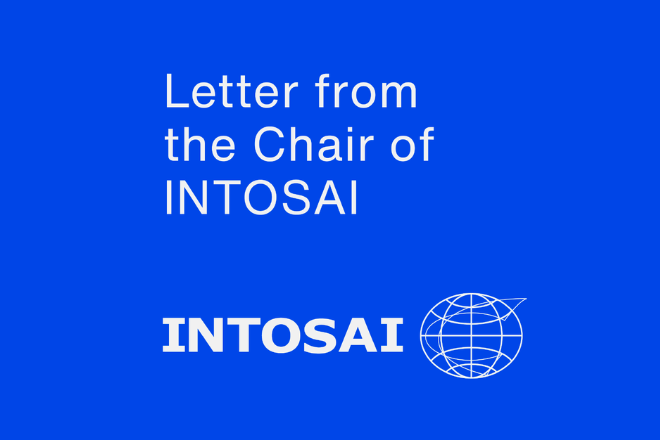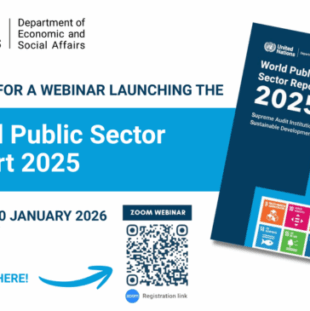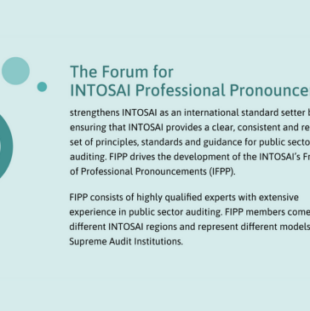The Role of Supreme Audit Institutions in Gender Equality

The chair of the International Organization of Supreme Audit Institutions (INTOSAI), Minister Bruno Dantas, in his March 2024 open letter, writes about INTOSAI’s commitment to ensuring gender equality across the world.

According to the World Economic Forum’s Global Gender Gap Report 2023, it will take 131 years to reach global gender parity at the current rate. The progress made in recent decades has been largely neutralized by the COVID-19 pandemic and successive economic and geopolitical crises. Despite regional differences, no country has achieved gender parity, making this a true global issue.
Women around the world face various challenges such as gaps in social protection systems, poverty, food insecurity, climate change and discrimination, as well as cultural and economic barriers that limit their representation in political and leadership positions proportionate to their population share. Understanding the intersection of race, ethnicity, social class, sexual orientation, religion, age, disability, and geographical location is fundamental to comprehend the conditions affecting women across different groups.
The Beijing Conference (1995), a milestone in combating gender inequality worldwide, emphasized gender equality as an essential human right. The United Nations 2030 Agenda included it among the 17 Sustainable Development Goals (SDGs) to be pursued by the entire global community.
The Supreme Audit Institutions (SAIs) play a crucial role in monitoring the SDGs as well as international human rights agreements, and therefore have much to contribute to the global journey towards gender equality.
The possibilities for audit institutions to act on this issue are broad and cross-cutting. It includes gender audits, assessment of the differentiated impact of public programs on women and other vulnerable groups, and the promotion of gender-responsive budgets or leadership by example.
Examples show how these possibilities turn into concrete actions around the world. In 2018, the Ibero-American coordinated audit on SDG 5 (“achieve gender equality and empower all women and girls”), in which 18 SAIs participated, aimed to assess government preparedness to implement this goal. Following this, an audit on poverty (SDG 1) with a gender focus (SDG 5) was carried out in 2019-2020, with the participation of 6 SAIs from Latin America. At the end of 2023, the Organization of Latin American and Caribbean Supreme Audit Institutions (OLACEFS) released the consolidated findings of the coordinated audit assessing the state response to combat violence against women, gathering information from 12 countries.
Audits focusing on preventing and combating violence against women have also been carried out by the SAIs of Uganda and Fiji between 2019 and 2022. Additionally, the Office of the Auditor General of Canada has undertaken audits to assess the gender perspective in institutional processes as well as in products, initiatives, and final services provided to the population.
Furthermore, audits centered on systems for preventing and combating harassment within government agencies have been conducted by the SAIs of the United States, Canada, Australia, and Brazil, indicating the relevance of the issue and the potential for inducing good practices among audit agencies.
Another area of focus is gender-responsive budgeting, exemplified by the European Court of Auditors, which published the special report “Gender Mainstreaming in the EU budget: time to turn words into action” in 2021, and the Pro PALOP-TL-ISC program, under the United Nations Development Program (UNDP), in the context of Portuguese-speaking African countries and East Timor.
I would also like to highlight the Global SAI Stocktaking Report 2020, created by the Development Initiative of the International Organization of Supreme Audit Institutions (IDI – INTOSAI)), which provided a comprehensive overview of the adoption of practices to promote gender equality by SAIs. Regional organizations such as OLACEFS, the African Organisation of English-speaking Supreme Audit Institutions (AFROSAI-E), and the Pacific Association of Supreme Audit Institutions (PASAI) have also developed gender policies that serve as benchmarks for their audit institutions.
In addition, there are ongoing initiatives such as the AFROSAI Women Leadership Academy and the “Women in Leadership” Exchange Program, promoted by the Federal Court of Accounts (SAI Brazil) in partnership with Pro PALOP-TL. In 2023, the program welcomed leading female auditors from the Community of Portuguese Language Countries (CPLP). Both initiatives aim to train and empower participants to enhance the representation of women in leadership positions.
Recently, INTOSAI has signed a cooperation agreement with the UNDP to strengthen the capacity of supreme audit institutions to integrate gender equality into their work and to encourage the achievement of the UNDP Gender Equality Seal for Public Institutions.
INTOSAI also supports IDI’s Equal Futures Audit Changemakers initiative, which seeks to transform auditors into real agents of change responsible for drawing up strategies for their audit institutions, as well as carrying out audits related to equality and inclusion issues, with a particular emphasis on gender equality.
Guided by IDI’s gender strategy and recognizing that the promotion of gender equality must be part of a culture of integrity and non-discrimination, I firmly believe that for SAIs to truly impact lives and foster sustainable development, they need to incorporate a gender perspective into both their organizations and their audit work.
OLACEFS’ and IDI’s gender policies are sources of inspiration, pushing us towards a more equitable INTOSAI community. I hope that these guidelines will play an active role in promoting a culture of gender equality for all stakeholders in the future. The path to equality is becoming clearer, fueling our hope for a future in which every individual is valued and respected regardless of gender.






